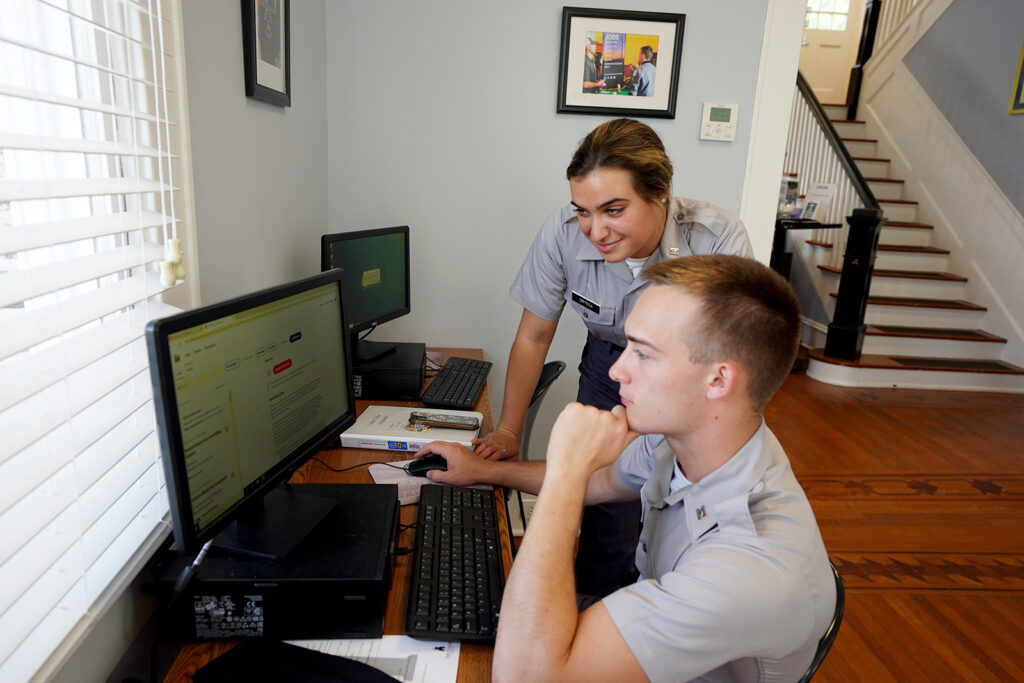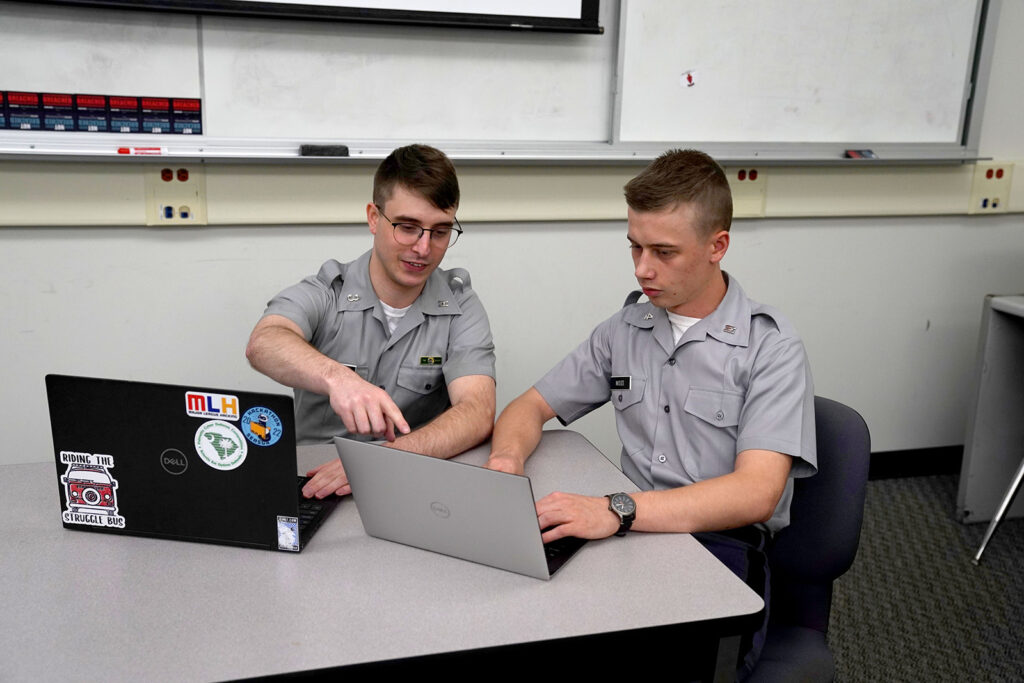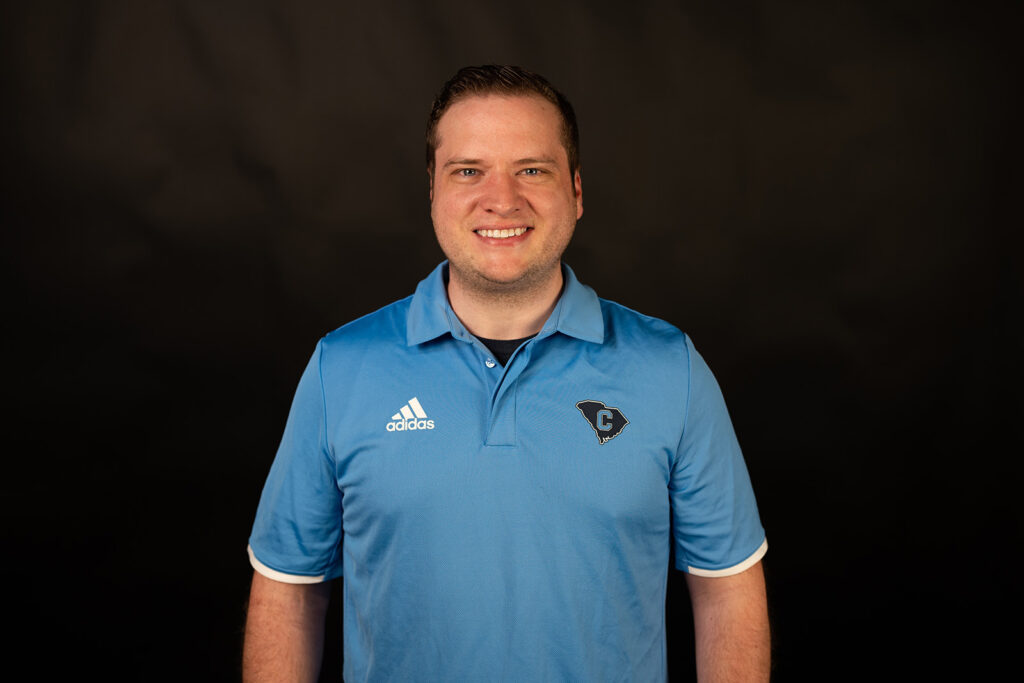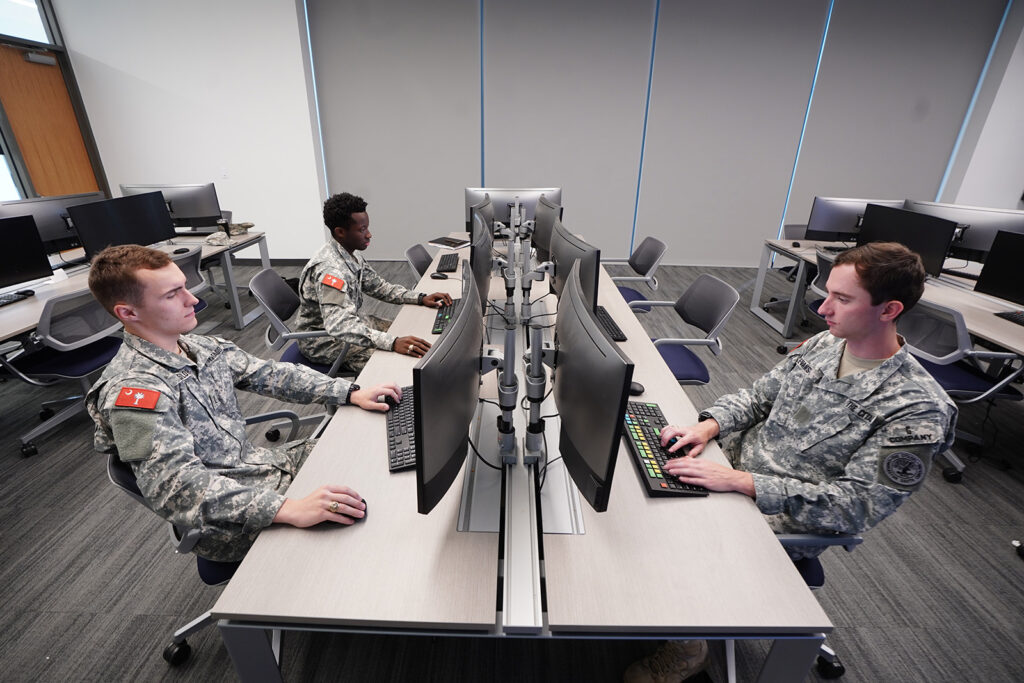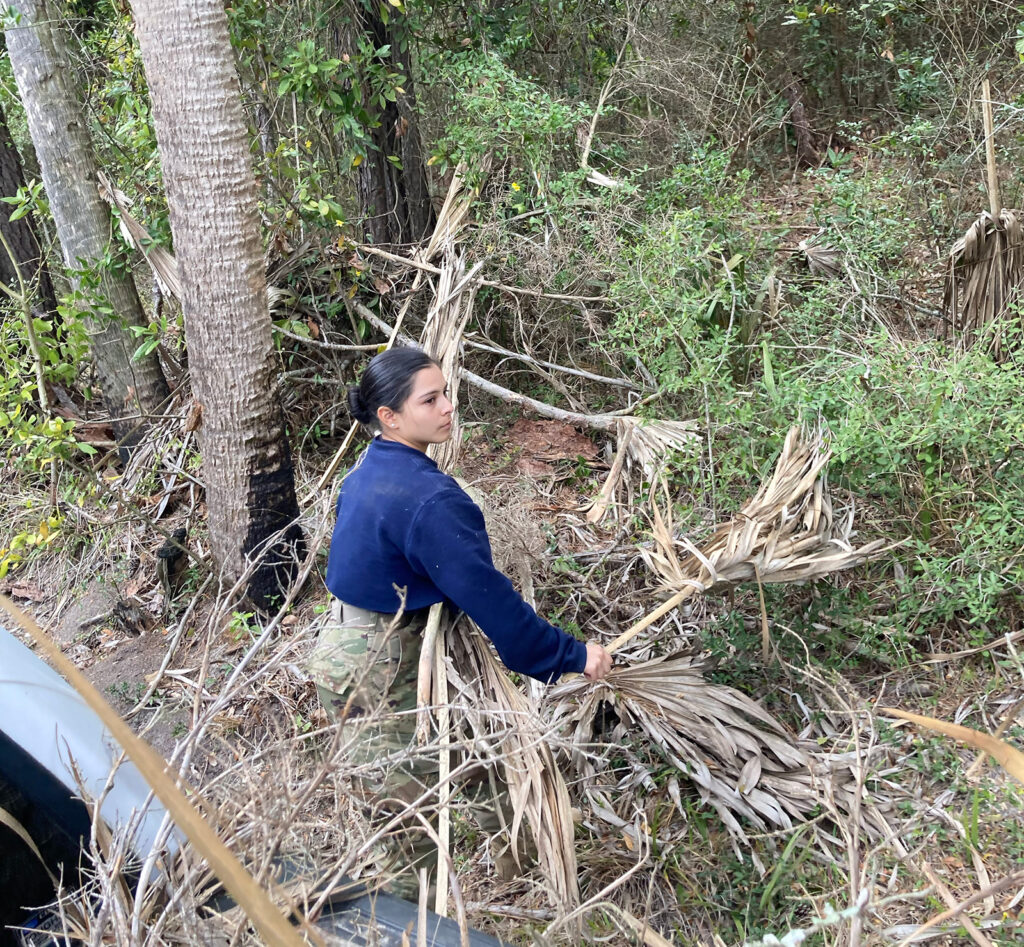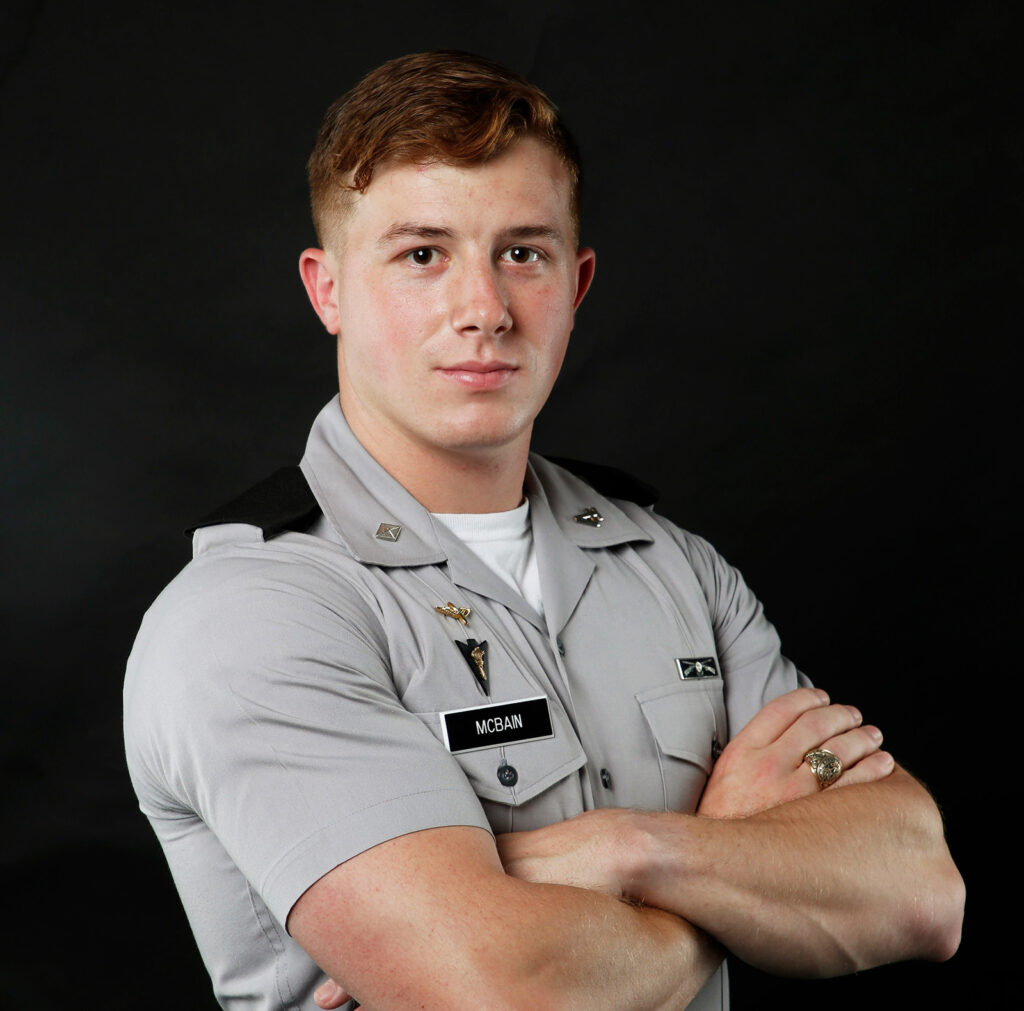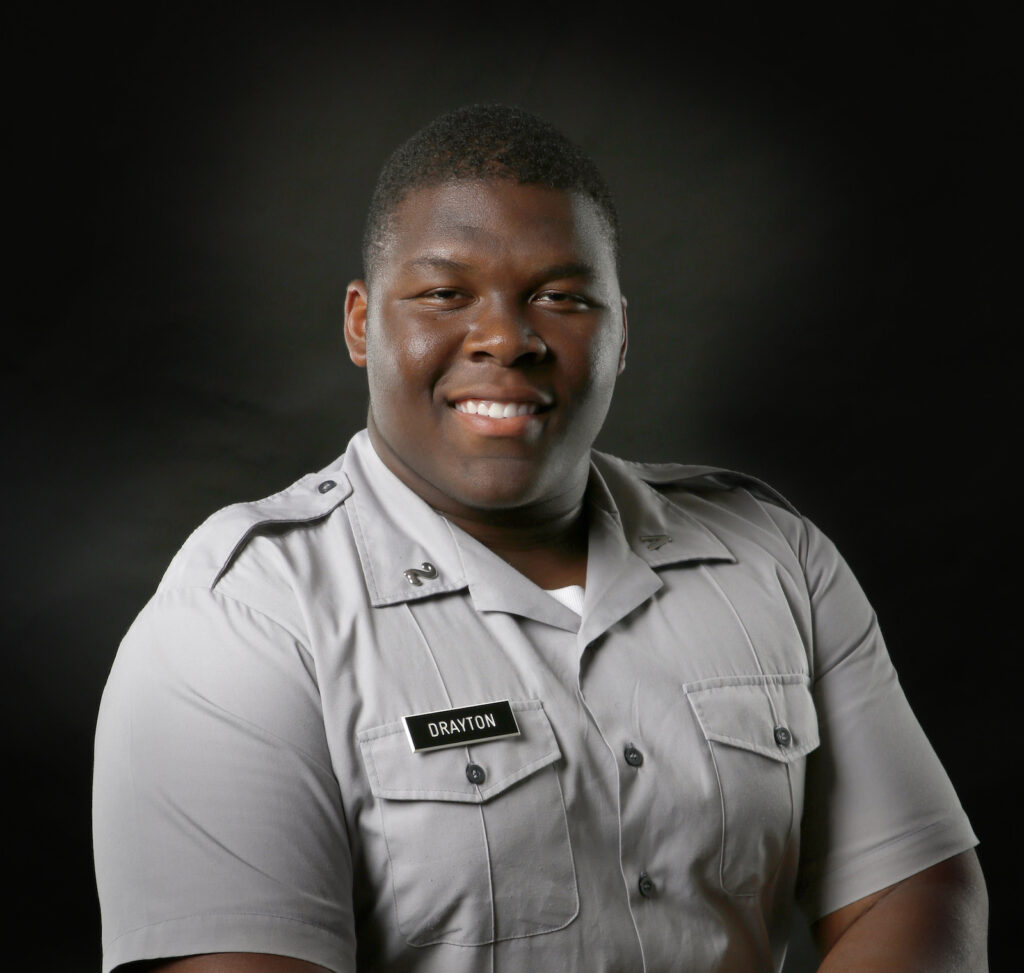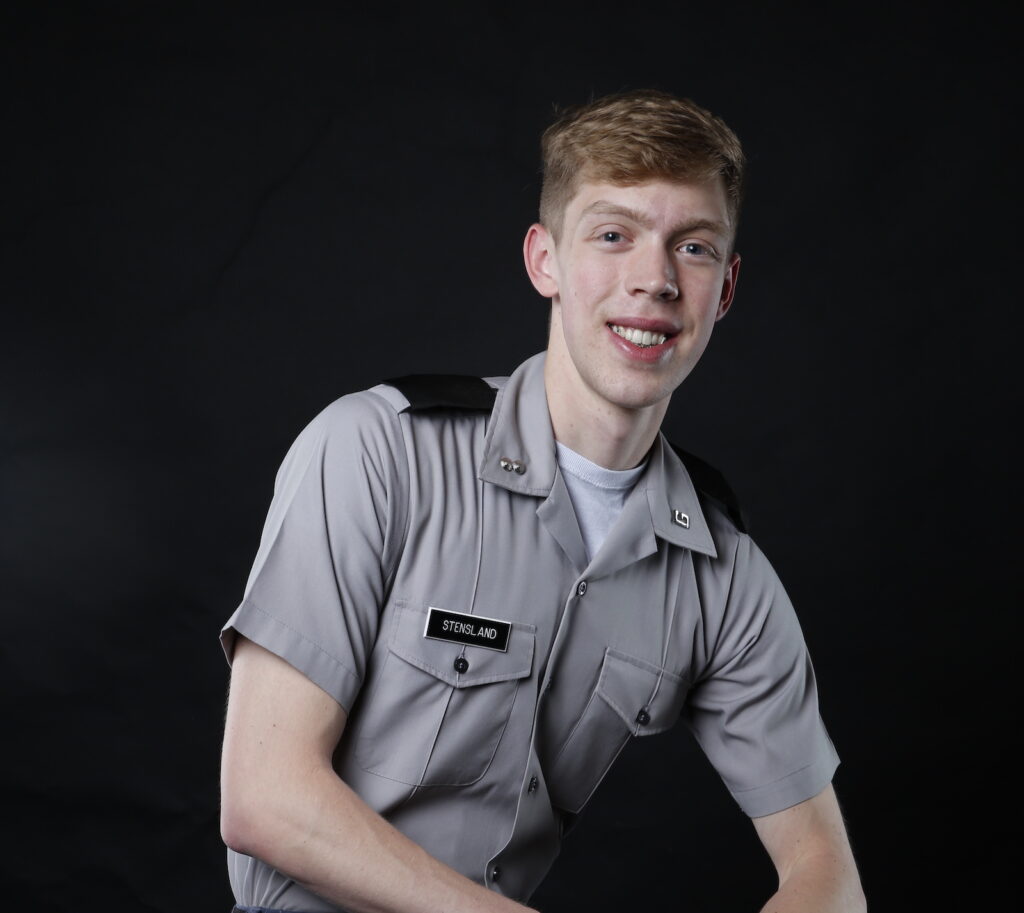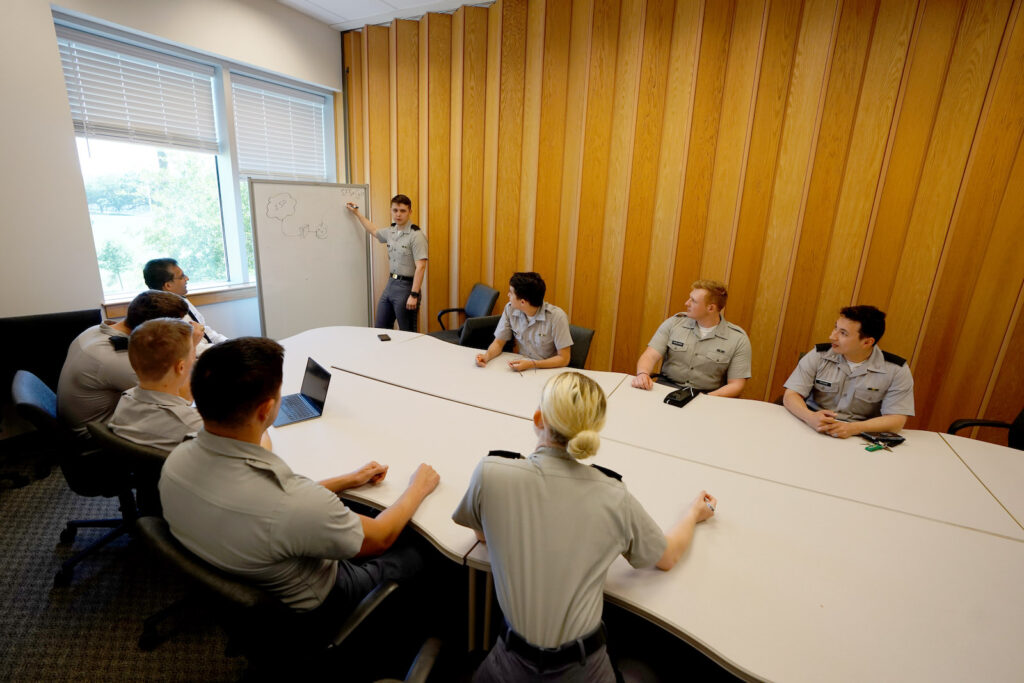For cadets, hands-on professional experience doesn’t have to wait until graduation. Tiziana Ortega,
’24, has already sampled gym administration, career education and supply chain management through three separate internships.
Ortega’s first internship took place at the Ethos Athletic Club. “Our main goal was having cheerful energy to welcome people to the gym,” she said. Ortega chose this internship partly because one of the owners, Joey Welling, ’09, is a Citadel graduate.
“I like to give back to people who helped me, and I can do that by helping others.”
Because Ortega coordinated the internship through The Citadel Career Center, her real- world experiences also count as three credit hours. “It was a fun environment,” she said, “and I got to know what opening a business is like. The people are so driven, and they navigated the whole process in the middle of a pandemic.”
Ortega’s next internship with the Career Center began in January. “It’s a great community within that little house,” she said, referring to the center’s offices in former faculty housing across from Hagood Gate. “I never saw it as an opportunity to work on campus until they reached out to me. Two weeks later, I had a fun job right after classes, helping other cadets write resumes, prepare for interviews and build LinkedIn profiles.”
Cadets often seek assistance during drop-in hours. “I helped a lot of cadets during rank boards,” Ortega said. “Getting a thank-you text from classmates after helping them with their resume always makes me feel good.”
The internship has also improved Ortega’s own communication and networking skills. “I’m already planning my hours for the fall semester,” she said. “I’m excited because I will have more opportunities to lead. I’ll be contacting employers and helping them get set up on campus.”
As she awaits the new academic year, Ortega is spending her summer in Charleston interning with Gnosis Freight. This logistics company develops software for tracking shipments in one suite. “I like to give back to people who helped me, and I can do that by helping others,” she said. “I like to see everyone succeed.” As a business administration major with a concentration in supply chain management, Ortega knows that helpfulness is a commodity that should be continuously delivered.
